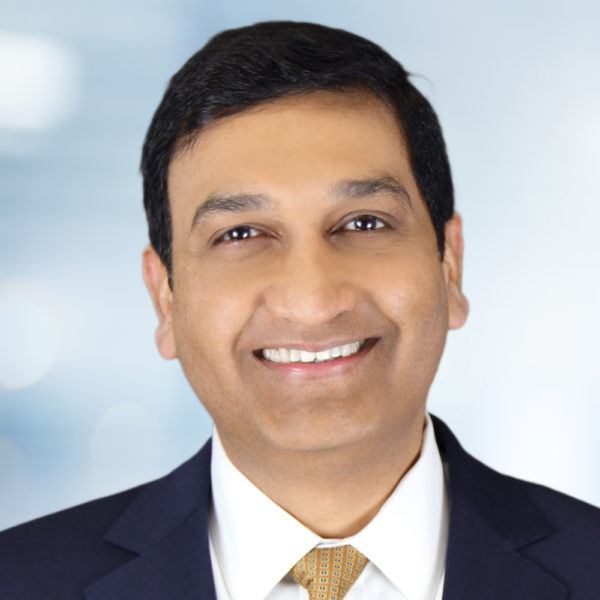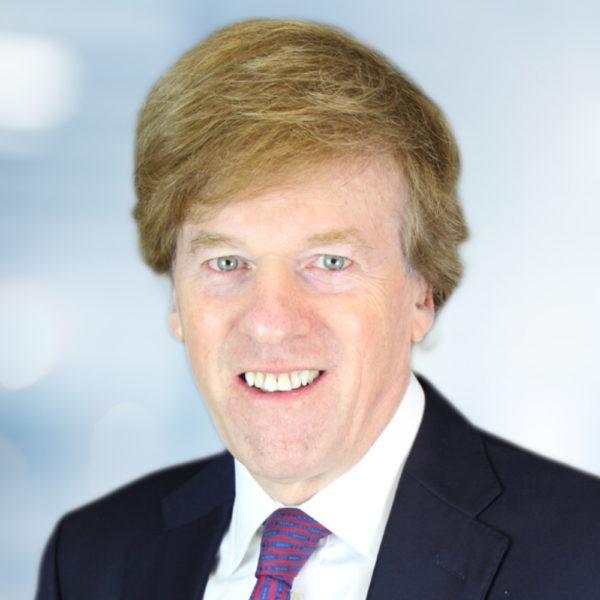
The Brain and Heart Symposium
Course Goal
A collaboration of Barrow Neurological Institute, Arizona Heart Rhythm Center, and Nevada Heart & Vascular Center, the 2024 Brain-Heart Symposium aims to give an overview of the current state-of-the-art scientific knowledge in neurocardiology. The meeting will consist of in-person, live guests, and speakers. Reuniting speakers specialized in neurology, interventional cardiology, electrophysiology, and cardiac surgery, morning and afternoon sessions will consist of plenary lectures, and debates, as well as live interventional cardiology sessions.
Course Learning Objectives
- Define the common conditions of brain-heart related disorders such as stroke, atrial fibrillation, syncope, and autonomic disorders
- Review the updated recommendations on the diagnostic workup of those conditions
- Discuss the medical management of stroke prevention, cardiac arrhythmias, and syncope
- Explain the therapeutic options in the interventional treatment of atrial fibrillation, stroke prevention, and syncope, as well as neurosurgical approaches for other vascular diseases of the brain
Registration Information
| Attendee Type | price |
|---|---|
| In-Person Physician CME Admission | $100.00 |
| In-Person Physician Non-CME Admission | $50.00 |
| Virtual Physician CME Admission | $90.00 |
| Virtual Physician Non-CME Admission | $50.00 |
| In-Person and Virtual Nurse Admission with CNE Credits | $25.00 |
| Advanced Practice Provider In-Person and Virtual Admission | $25.00 |
| Fellows and Residents In-Person and Virtual Admission | Free |
| Medical Students In-Person and Virtual Admission | Free |
Refund and cancellation policy: Barrow reserves the right to cancel or change the program for due causes.
CME & CNE Information
- Award of CME credits by ACS is based on compliance of the program with the ACCME accreditation requirements and does not imply endorsement by ACS of the content, the faculty, or the sponsor of the program.
- Successful completion of this CME activity, which includes participation in the evaluation component, enables the learner to earn credit toward the CME of the American Board of Surgery’s Continuous Certification program.
- By attending this activity, you give us permission to share your CME data with the CME Accrediting provider and the American Board of Surgery via the Accreditation Council for Continuing Medical Education.
- If you are a physician and Diplomate of the American Board of Surgery and you do not already have an ACS profile (Learner ID), you can create one through the ACS New User Registration Form. This is a free offering for those who have enrolled in an ACS- Accredited educational activity. Your ACS ID will give you access to MyCME to transmit your CME data. To learn more about MyCME contact MyCME@facs.org.
- If you need assistance with creating an ACS Learner ID or are not certain if you already have one, please contact Log-In Help.

In-Person – Las Vegas, NV
Saturday, November 16, 2024
7:30 AM – 5:30 PM (PST)

Date, Time, and Location
In Person
Saturday, November 16, 2024
7:30 AM – 5:30 PM (PST)
Aria Conference Center
Joshua Rooms 5 & 6
3730 S. Las Vegas Blvd.
Las Vegas, NV 89158
- Discount Rate for Hotel expires October 16th
- Contact Vaguayo@AZHeartRhythm.com for Hotel Discount Rates/Parking Validations
Target Audience
The program has been designed to meet the educational goals of cardiologists and neurologists, including residents and fellows training both specialties, as well as internists, physicians, nurses, and other health care workers involved in the evaluation and treatment of patients with neurologic and cardiac disorders.
Speaker Information
All times refer to Nevada Time (Pacific Standard Time).
| SPeaker | Topic & Time |
|---|---|
| Saturday, November 16- Registration, Breakfast and Vendor Exhibit | 7:30 AM |
| David Wang, DO Vijendra Swarup, MD, FACC, FHRS Robert Lemery, MD Chowdhury Ahsan, MD | Welcome and Introductions to Brain-Heart (7:55 AM) |
| Moderators: Vijendra Swarup, MD; Dhanujaya R. Lakkireddy, MD | Session I: Atrial Fibrillation and Stroke Prevention: Strategies and Innovations |
| Robert Lemery, MD | The Autonomic Nervous System, Neurocardiology and Atrial Fibrillation (8:00 AM) |
| Sudarone Thihalolipavan, MD | AF Surveillance in the Digital Age (8:10 AM) |
| Andrea Natale, MD | Pulsed Field Ablation in the EP Lab: Safeguarding the Esophagus While Sparing Cardiac Ganglia? (8:20 AM) |
| Supreet Kaur, MD | Embolic Strokes of Unknown Source (ESUS): Controversies in Diagnosis, Risk, and Treatment (8:30 AM) |
| Sabil Kar, MD | Atrial Fibrillation and Stroke Prevention (Debate): The Interventional Approach: Left Atrial Appendage Occlusion: PRO (8:40 AM) |
| Dhanujaya R. Lakkireddy, MD | Atrial Fibrillation and Stroke Prevention (Debate): The Pharmacologic Approach: Anticoagulants and Beyond: PRO (8:50 AM) |
| Sabil Kar, MD Dhanujaya R. Lakkireddy, MD | Atrial Fibrillation and Stroke Prevention (Debate): Consensus & Clinical Key Points (9:00 AM) |
| Robert Lemery, MD Sudarone Thihalolipavan, MD Andrea Natale, MD Supreet Kaur, MD Sabil Kar, MD Dhanujaya R. Lakkireddy, MD Vijendra Swarup, MD | Panel Discussion and Q&A (9:10 AM) |
| Moderator:Vijendra Swarup, MD; Anthony Alamo, MD | Session II: Feature Presentation |
| M. Edip Gurol, MD, MSc | Tailored Stroke Prevention in Atrial Fibrillation: Neuroimaging, Precision Cardiology and the intersection of Neurology and Cardiology (9:30 AM) |
| M. Edip Gurol, MD, MSc | Questions and Comments (9:50 AM) |
| Break | 10:00 AM |
| Moderators: M. Edip Gurol, MD, MSc; Arash Aryana, MD | Session III: Stroke Prevention, Therapeutic Interventions, and Managing Brain Bleeds |
| David Wang, DO | Pharmacological Strategies in Stroke Management: Integration of Antiplatelet, Anticoagulant, and Neuroprotective Therapies to Limit Stroke Damage While Managing Bleeding Risks (10:30 AM) |
| Chowdhury Ahsan, MD | Harnessing Incretin-Based Therapies: Transformative Impact of GLP-1 Receptor Agonists in Cardiovascular and Stroke Prevention (10:40 AM) |
| Saibal Kar, MD | Interatrial Septal Defect Closure: Updated Guidelines for Managing Patients with Cryptogenic Stroke, Migraine, Scuba Diving, and Other Clinical Scenarios (10:50 AM) |
| Deanne Sasaki-Adams, MD | Surgical Interventions in Intracerebral Hemorrhage: Indications and Outcomes – ENRICH Trial (11:00 AM) |
| Paige Banyas, MD | Thrombectomy for Stroke: Expanding the Criteria for Intervention in Large Vessel Occlusion with Low ASPECTS Score (11:10 AM) |
| David Wang, DO | Low-Field MRI for Diagnosis of Stroke Care: Revolutionizing Detection, Diagnosis, and Intervention (11:20 AM) |
| Devi Nair, MD | Stroke Prevention in the Era of Rhythm Over Rate Control for Atrial Fibrillation (11:30 AM) |
| David Wang, DO Chowdhury Ahsan, MD Saibal Kar, MD Deanne Sasaki-Adams, MD Paige Banyas, MD Devi Nair, MD | Panel Discussion and Q&A (11:40 AM) |
| Lunch | 12:00 PM |
| Moderator: David Kennigsberg, MD; Robert Lemery, MD | Session IV: Syncope, Cardiac Arrest, Heart Failure, and Amyloid Disease: Intersecting Pathologies of the Brain and Heart |
| Justin Hoskin, MD | The Brain Is in Charge: Basic Understanding of the Sympathetic and Parasympathetic Nervous Systems (1:00 PM) |
| Robert Lemery, MD | The Heart Is in Charge: The Concept of the Little Brain on the Heart – The Intrinsic Cardiac Nervous System (1:10 PM) |
| Win Shen, MD | Neuro-Cardiogenic Syncope and Dysautonomia: Advanced Insights into Autonomic Dysfunction and Comprehensive Management Strategies (1:20 PM) |
| Sudarone Thihalolipavan, MD | Cardiogenic Syncope and Sudden Cardiac Death: New Leadless Pacing and Extravascular ICD technologies (1:30 PM) |
| David Harris, MD | Sudden Unexpected Death: Unraveling the Brain’s Role in Fatal Outcomes (1:40 PM) |
| Yonas E. Geda, MD, MSc | Amyloid Disease in the Brain and Heart: Strategies for Removing Beta Amyloid in Neurodegenerative Disorders (1:50 PM) |
| Sanjay Malhotra, MD | Amyloid Disease in the Brain and Heart: Stabilizing Transthyretin Protein in Cardiac Amyloidosis (2:00 PM) |
| Justin Hoskin, MD Robert Lemery, MD Win Shen, MD Sudarone Thihalolipavan, MD David Harris, MD Yonas E. Geda, MD, MSc Sanjay Malhotra, MD | Panel Discussion and Q&A (2:10 PM) |
| Break | 2:30 PM |
| Moderators: Moussa Mansour, MD; Selina Parveen, MD | Session V: Bridging Neurology and Cardiology: Advances in Neuromodulation Therapies |
| Lin Zhang, MD | Deep Brain Stimulation for Essential Tremor and Parkinson’s Disease (2:40 PM) |
| Christina Kwasnica, MD | Deep Brain Stimulation: A New Frontier in Stroke Rehabilitation (2:50 PM) |
| Robert Lemery, MD | Neuromodulation for Syncope: The Emerging Role of Catheter Ablation of Cardiac Nerves and Ganglia (3:00 PM) |
| Dhanunjaya Lakkireddy, MD | Neuromodulation for Atrial Fibrillation: Ablation of Cardiac Nerves and Ganglia, and Tragus Nerve Stimulation (3:10 PM) |
| David Kenigsberg, MD | Neuromodulation in Hypertension: Renal Nerve Denervation (3:20 PM) |
| Sri Sundaram, MD | Neuromodulation for AF: Ablation of Cardiac Nerves and Ganglia, and Tragus Nerve Stimulation (3:30 PM) |
| Win Shen, MD | Neuromodulation for Syncope: Cardiac Ablation to Treat Syncope (3:40 PM) |
| Lin Zhang, MD Christina Kwasnica, MD Robert Lemery, MD Dhanunjaya Lakkireddy, MD Win Shen, MD David Kenigsberg, MD Sri Sundaram, MD | Panel Discussion and Q&A (3:50 PM) |
| Moderators: Devi Nair, MD, Andrea Natale, MD | Session VI: Innovations in Cardiovascular and Neurological Care: AI, Ambulatory Surgery Centers, Arrhythmia Interventions |
| Srijoy Mahapatra, MD | The Promise and Peril of Artificial Intelligence in Invasive Medicine (4:00 PM) |
| Moussa Mansour, MD | Pulse Field Ablation of Atrial Fibrillation: New Clinical Trials and Real-World Data (4:10 PM) |
| Vijendra Swarup, MD | Ambulatory Surgical Centers and the Future of Arrhythmia Intervention for Stroke Prevention (4:20 PM) |
| Arash Aryana, MD | The Arrhythmia Intervention Society (AIS): A New Society for Advocacy of Patient Care and Physician Representation (4:30 PM) |
| Srijoy Mahapatra, MD Moussa Mansour, MD Vijendra Swarup, MD Arash Aryana, MD | Panel Discussion and Q&A (4:40 PM) |
| David Wang, DO Vijendra Swarup, MD Robert Lemery, MD Chowdhury Ahsan, MD | Concluding Remarks (4:50 PM) |
| Adjourn | 5:25 PM |
| Inaugural Arrhythmia Intervention Society (AIS) Dinner Meeting | 6:30 PM |
Course Directors

Arizona Heart Rhythm Center

Arizona Heart Rhythm Center
Commercial Promotion
- No commercial support has been received.
Exhibitors and Sponsors
- Those interested in exhibiting or sponsorship should contact CME@BarrowNeuro.org for more information.
Disclosure Information
In accordance with the ACCME Accreditation Criteria, the American College of Surgeons must ensure that anyone in a position to control the content of the educational activity (planners and speakers/authors/discussants/moderators) has disclosed all financial relationships with any ineligible company held in the last 24 months. Please note that first authors were required to collect and submit disclosure information on behalf all other authors/contributors, if applicable.
Ineligible Company: The ACCME defines an “ineligible company” as any entity producing, marketing, re-selling, or distributing health care goods or services used on or consumed by patients. Providers of clinical services directly to patients are NOT included in this definition.
Financial Relationships: Relationships in which the individual benefits by receiving a salary, royalty, intellectual property rights, consulting fee, honoraria, ownership interest (e.g., stocks, stock options or other ownership interest, excluding diversified mutual funds), or other financial benefit. Financial benefits are usually associated with roles such as employment, management position, independent contractor (including contracted research), consulting, speaking and teaching, membership on advisory committees or review panels, board membership, and other activities from which remuneration is received, or expected. ACCME considers relationships of the person involved in the CME activity to include financial relationships of a spouse or partner.
Conflict of Interest: Circumstances create a conflict of interest when an individual has an opportunity to affect CME content about products or services of a ineligible company with which he/she has a financial relationship.
The ACCME also requires that ACS manage any reported conflict and eliminate the potential for bias during the educational activity. Any conflicts noted below have been managed to our satisfaction. The disclosure information is intended to identify any commercial relationships and allow learners to form their own judgments. However, if you perceive a bias during the educational activity, please report it on the evaluation.

